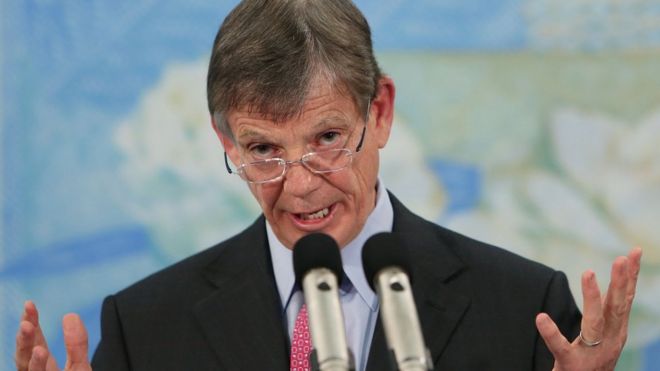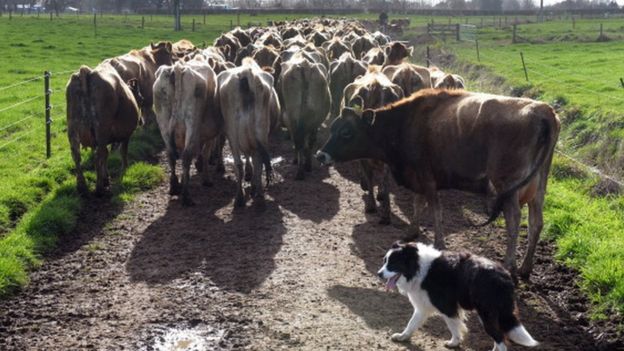
In a surprise move, the Reserve Bank of New Zealand (RBNZ) has cut its lending rates for the fifth time since June last year to a record low of 2.25%.
The bank said the 25 basis point cut was due to global growth worries and weaker demand from China - an important trade partner.
New Zealand is the world's largest dairy exporter but the sector has been facing some challenges.
The central bank signalled it could cut rates further to help boost growth.
The New Zealand dollar fell on the news by more than 1%.
The RBNZ last cut rates in December from 2.75% to 2.5%, saying the country's economy had softened in 2015.
At the time, central bank governor Graeme Wheeler said he was positive about the outlook for inflation and economic growth for 2016.

However, as he announced the bank's latest cut, Mr Wheeler said the outlook for global growth had worsened since the December cut "due to weaker growth in China and other emerging markets, and slower growth in Europe."
Mr Wheeler's announcement comes ahead of a European Central Bank (ECB) meeting later on Thursday. The ECB is widely expected to announce further stimulus measures to help bolster the eurozone's economic recovery.
Important dairy
Agriculture is an economic mainstay in New Zealand, particularly its dairy sector.
The country exports some 95% of its milk production, with 87% of that collected by Fonterra, the world's biggest dairy exporter.

But New Zealand's dairy exports have been hurt by falling prices internationally together with a slowdown of its major trading partner China - a big buyer of its dairy products.
"Domestically, the dairy sector faces difficult challenges," Mr Wheeler said.
Inflation has also been a concern for the country, with its annual rate at 0.1%. The bank's target is between 1% and 3%. Lowering benchmark lending rates is seen as one way to increase inflation.
Mr Wheeler's outlook was not altogether negative, however.
He said the country's growth was expected to be supported "by strong inward migration, tourism, a pipeline of construction activity, and accommodative monetary policy".
No comments:
Post a Comment